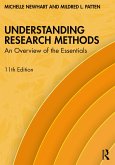This book provides a guide for undergraduate criminology and criminal justice students undertaking their final-year dissertation. It speaks to the specific challenges for criminology students who may wish to research closed institutions (such as prisons, courts, or the police) or vulnerable populations (such as people with convictions, victims of crime, or young people), and offers guidance on how to undertake research on these topics whilet avoiding many of the access and ethical obstacles.
It takes students through each phase of the dissertation, from designing and planning the research to writing up and presenting the completed work. The complexities of undertaking research on sensitive topics and with criminal justice institutions are discussed throughout, offering an insight into some of the challenges that students may be faced with and suggestions to overcome obstacles. It offers practical guidance for empirical and library-based projects and provides students with suggested resources for accessing primary and secondary data. It utilises a mixture of worked examples, top tips, practical strategies, and student activities to ensure the dissertation is a manageable and enjoyable process.
This book will be beneficial to all undergraduate criminology students who have to undertake either a library-based or empirical dissertation. The examples and activities in the book will also be useful for dissertation supervisors who can use them to support their dissertation students.
It takes students through each phase of the dissertation, from designing and planning the research to writing up and presenting the completed work. The complexities of undertaking research on sensitive topics and with criminal justice institutions are discussed throughout, offering an insight into some of the challenges that students may be faced with and suggestions to overcome obstacles. It offers practical guidance for empirical and library-based projects and provides students with suggested resources for accessing primary and secondary data. It utilises a mixture of worked examples, top tips, practical strategies, and student activities to ensure the dissertation is a manageable and enjoyable process.
This book will be beneficial to all undergraduate criminology students who have to undertake either a library-based or empirical dissertation. The examples and activities in the book will also be useful for dissertation supervisors who can use them to support their dissertation students.
"How to Write Your Undergraduate Dissertation in Criminology offers the essential guide to producing your dissertation. From the literature review to the methodology chapter, from finding data to finding your voice, it guides you step by step through the process using examples specific to criminology. As such, it gives you the best chance of excelling in your dissertation."
Dr David Churchill, Associate Professor in Criminal Justice, University of Leeds
"How to Write Your Undergraduate Dissertation in Criminology provides a helpful step by step guide to undertaking undergraduate research, complemented by a range of activities to encourage students to think about their dissertation research and writing in a manageable way. This text is also an excellent resource to support teaching and learning on dissertation modules with activities that academic staff can use in their teaching practice."
Dr Helen Nichols, Associate Professor in Criminology, University of Lincoln
"Academic writing is challenging, especially for students faced with writing a dissertation. What is needed is a practical, supportive, and user-friendly guide addressing all stages of the process from selecting a viable topic to producing a final edit. This is that guide. Authored by a leading expert in teaching and learning in criminology, all students will benefit from reading it and putting the advice into action."
Professor Gavin Dingwall, Professor of Criminal Justice Policy, De Montfort University
"How to Write Your Undergraduate Dissertation in Criminology will provide students with necessary skills and help them to work with their supervisors to plan and execute a research project. The book is well structured and covers everything students need to know to complete their dissertation. The design of the book is very engaging and encourages students to interact with the content through a series of exercises. As such, it provides an excellent learning resource."
Debbie Jones, Associate Professor in Criminology, Swansea University
"This is an excellent, supportive, and engaging book for students embarking on their undergraduate dissertation in criminology. With activities and diagrams to guide decision-making, the book breaks down what can be a daunting task into a manageable - and even enjoyable - process. The practical takeaways make this an essential read for students navigating the dissertation journey."
Dr Christine Haddow, Lecturer in Criminology, Edinburgh Napier University
Dr David Churchill, Associate Professor in Criminal Justice, University of Leeds
"How to Write Your Undergraduate Dissertation in Criminology provides a helpful step by step guide to undertaking undergraduate research, complemented by a range of activities to encourage students to think about their dissertation research and writing in a manageable way. This text is also an excellent resource to support teaching and learning on dissertation modules with activities that academic staff can use in their teaching practice."
Dr Helen Nichols, Associate Professor in Criminology, University of Lincoln
"Academic writing is challenging, especially for students faced with writing a dissertation. What is needed is a practical, supportive, and user-friendly guide addressing all stages of the process from selecting a viable topic to producing a final edit. This is that guide. Authored by a leading expert in teaching and learning in criminology, all students will benefit from reading it and putting the advice into action."
Professor Gavin Dingwall, Professor of Criminal Justice Policy, De Montfort University
"How to Write Your Undergraduate Dissertation in Criminology will provide students with necessary skills and help them to work with their supervisors to plan and execute a research project. The book is well structured and covers everything students need to know to complete their dissertation. The design of the book is very engaging and encourages students to interact with the content through a series of exercises. As such, it provides an excellent learning resource."
Debbie Jones, Associate Professor in Criminology, Swansea University
"This is an excellent, supportive, and engaging book for students embarking on their undergraduate dissertation in criminology. With activities and diagrams to guide decision-making, the book breaks down what can be a daunting task into a manageable - and even enjoyable - process. The practical takeaways make this an essential read for students navigating the dissertation journey."
Dr Christine Haddow, Lecturer in Criminology, Edinburgh Napier University









